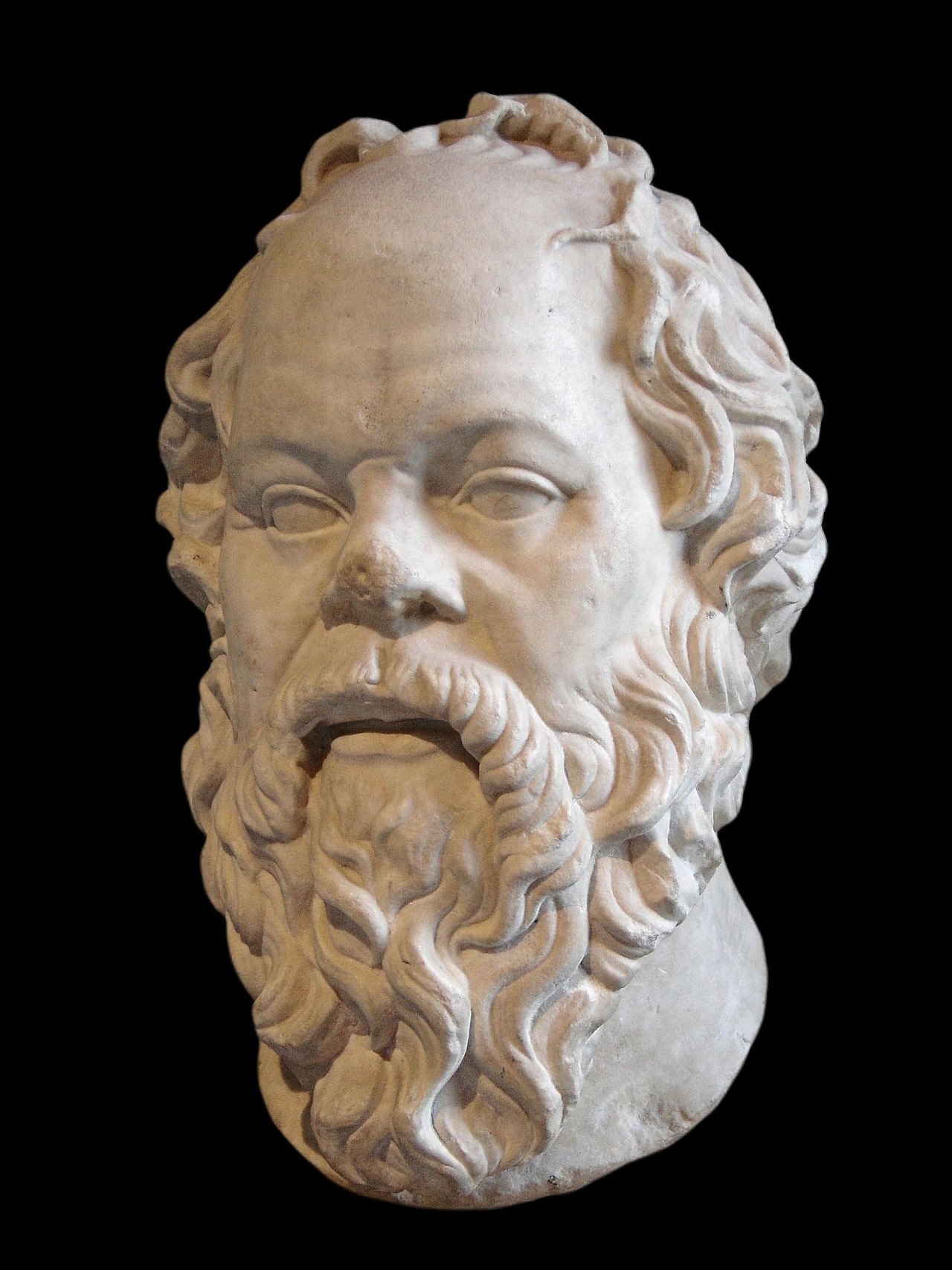Socrates Facts For Kids
Socrates was an ancient Greek philosopher whose teachings laid the groundwork for Western philosophy, known for his Socratic method and emphasis on critical thinking.
Set reading age
View for Kids
Easy to read and understand
View for Students
Clear, detailed explanations
View for Scholars
Deep dives and big ideas
Introduction
Socrates was a famous Greek philosopher who lived in Athens, Greece, from 470 BC to 399 BC. 🏛️ He is known for his ideas about knowledge and morality. Socrates didn't write books like other philosophers; instead, he loved talking to people and asking questions. He wanted to help others think better and find the truth. One of his most famous quotes is "The unexamined life is not worth living." 🌟 Socrates is considered one of the founding figures of Western philosophy, which means he influenced many thinkers who came after him!
Gallery of Socrates Facts For Kids
Trial And Death
In 399 BC, Socrates was put on trial in Athens. ⚖️ Some people didn't like his questions and thought he was causing trouble. He was accused of corrupting the youth and disrespecting the gods. Socrates defended himself bravely but was found guilty. 🏛️ Instead of running away, he accepted a poison drink called hemlock, saying it was better than living a dishonest life. He chose to die rather than stop searching for the truth. This showed how much he valued his ideas and beliefs! 💔
Modern Relevance
Even though Socrates lived thousands of years ago, his ideas are still relevant! 🌍Today, people share his methods in classrooms to encourage critical thinking. His questions help us explore life’s mysteries and understand our actions. 💭Many people believe that Socrates can teach us important lessons about honesty, ethics, and friendship! Socrates’ love for discussion and examination encourages everyone, young and old, to always question and seek deeper understanding in our lives! 🌈
Socratic Paradoxes
Socratic Paradoxes are some tricky statements made by Socrates! 🤔One famous paradox is “No one does wrong willingly.” This means that people don't purposely choose to do bad things; they just might not know what is right! Another example is “To know the good is to do the good,” which means if you really understand what is good, you will always do good things. 🌈These ideas encourage people to think about their actions and make wise choices in life!
The Socratic Method
The Socratic Method is a special way Socrates asked questions to help people learn. 💡Instead of just giving answers, he would ask, "What do you think?" and "Can you explain that?" This way, people would think deeply about their answers! It’s like playing a guessing game 🕵️♂️ where every question leads to a new one. This method encourages critical thinking and helps everyone find their own conclusions. Many teachers still use this fun technique today in classrooms to help students learn better!
Early Life And Background
Socrates was born in a place called Athens, which is in modern-day Greece. 🌍His father was a stonecutter, and his mother was a midwife. As a young boy, he wasn't very interested in studying like other children but loved talking to people about big ideas! 🗣️ He fought in the army and participated in important battles, showing he was brave. As he grew older, he started to question everything around him, which made people think differently. This is how his journey into philosophy began!
Legacy And Interpretation
Socrates left a huge legacy, which means he had a big impact that lasts even today! 🌟His teaching style and ideas influenced countless generations of philosophers and thinkers. Many people celebrate "Socrates Day," a day to honor his contributions and think about important questions! 📅His life story is also shared in schools, showing how crucial it is to ask questions and seek truth! The way he fought for his beliefs inspires many to stand up for what they think is right!
Philosophical Contributions
Socrates is famous for many important ideas! 🌈He believed that understanding our own minds and behaviors helps us live better lives. He didn’t write things down, but his students, like Plato, shared his teachings. One of his main ideas was that knowledge is a form of virtue, meaning knowing what is right helps you do right. 🤔Socrates also aimed to find the truth through discussions, making him a pioneer in philosophy. His ideas have shaped countless debates about ethics and how we should treat others!
Influence On Western Philosophy
Socrates influenced many great thinkers after him, especially his student Plato. 👨🎓 Plato wrote many works about Socrates' ideas, helping them to spread even further! Other famous philosophers, like Aristotle, were also inspired by him. His focus on ethics, knowledge, and self-examination became the foundation for Western philosophy. 🌍Thanks to Socrates, people began to ask important questions about life, courage, and justice. Today, you can still find his influence in books, classrooms, and discussions around the world!
Socrates Facts For Kids Quiz


Make things. Learn new skills. Share safely.
DIY is a creative community where kids draw, build, explore ideas, and share.
No credit card required

